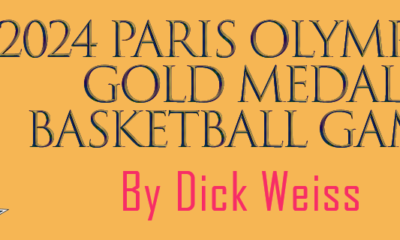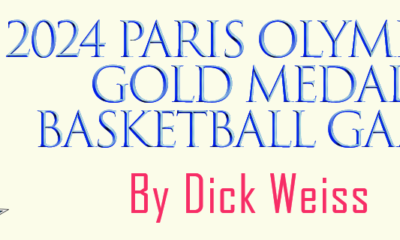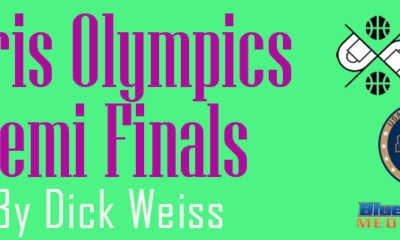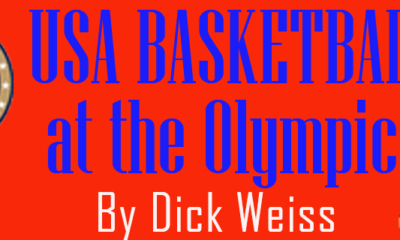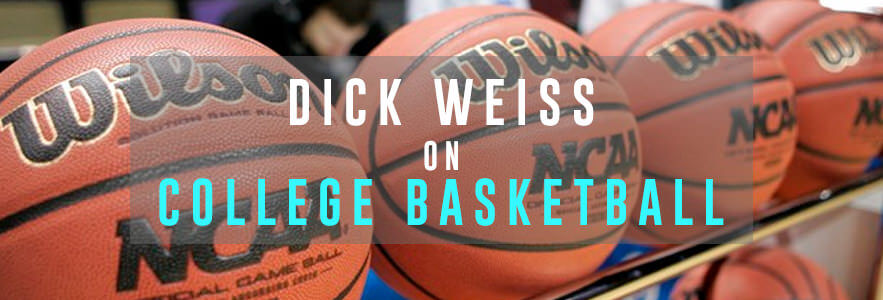
Dick Weiss on College Basketball
PHILADELPHIA– The NCAA, stunned by the wide spread FBI investigation into wide spread corruption in the sport, has taken the first steps toward cleaning up men’s college basketball.
Among the key changes: Players will be allowed to return to college if they are passed over in the NBA draft. Agents will be able to represent high school players who are determined to be “Elite” by USA Basketball provided they are certified by an NCAA program and there will be financial assistance for players who leave school early.
Other recommendations from the Committee on Basketball Reform include:
Basketball related events for high school students will be subject to more rigorous certification requirements to ensure transparency in operations and finances.
The revised recruiting calendar will allow coaches to attend additional high school-sponsored events. The new rules will add four-day recruiting periods (Monday through Thursday) in April but do not increase the limit on days individual coaches can recruit. Also, coaches will be allowed to attend and evaluate recruits at the NBA Top 100 camp in mid-June. Additionally, coaches will be able to attend events during the last two weekends of June if those events are approved by the National Federation of State High School Associations, organized by groups affiliated by high schools or high school coaching associations and occur at middle schools, high schools or colleges. Coaches can also attend one weekend youth basketball event in early July.
The new calendar also will allow coaches to attend NCAA youth development camps in late July, a new collaboration between the NCAA, USA Basketball, the NBA and the NBA Players Association.
Coaches and athletics staff must report athletics-related income from any source outside their school, such as an apparel company. The NCAA is pursuing an agreement with apparel companies on expectations for accountability and transparency regarding their involvement in youth basketball.
As a term of employment, school presidents and athletics staff must commit contractually to full cooperation in investigation and infractions process. This is the NCAA’s way of instituting de facto subpoena power.
Investigators involved in NCAA cases can accept information from a court of law, government agency, accrediting body or a commission authorized by the school. When schools and NCAA staff agree on the facts of a case, they can work together on a resolution, including appropriate penalties.
Those who break the rules face stronger penalties, including longer post-season bans (up to five years), long head coach suspensions (could extension beyond one season, longer employment limitations for coaches and staff who violate rules (potential for lifetime show cause orders), increased recruiting restrictions and the loss of all revenue associated with the NCAA Division I men’s basketball championship.
University presidents and chancellors will be personally accountable for their athletics programs following the rules.
Two independent groups will be approved to oversee investigation and resolution of cases defined as complex that include the possibility of major penalties or alleged violations of core NCAA values, such as prioritizing academics and the well-being of student athletes. The first independent group will include both external investigators with no school affiliation and selected NCAA enforcement staff. The second group will consist of 15 people with backgrounds in law, education or sports and not affiliated with NCAA schools or conferences, will review the finding from the first group, oversee the case hearing and decide on penalties.
Pending adoption at the NCAA Convention in Jan. 2019, independent members will be added to the NCAA Board of Governors, which is responsible for oversight of the entire Association.
Not everyone is happy with the changes.
The has already been blow back from dozens of college coaches who feel the NCAA cannot control the cheating that goes on in all sports and have created a calendar that makes convenient exemptions for non-scholastic events sponsored by the NBA and major shoe companies while restricting mid-major and low major coaches have to evaluate prospects in the July observation period unless they are among the 2,500 invited to NABC sponsored regional camps. There is a strong possibility independent event operators, who feel they are being run out of the business, will take legal action.
The recommendations also have not come up with any solutions for third party payments to prospects or address financial compensation for student athletes.
Dick Weiss is a sportswriter and columnist who has covered college football and college and professional basketball for the Philadelphia Daily News and the New York Daily News. He has received the Curt Gowdy Award from the Naismith Basketball Hall of Fame and is a member of the national Sportswriters Hall of Fame. He has also co-written several books with Rick Pitino, John Calipari, Dick Vitale and authored a tribute book on Duke coach Mike Krzyzewski.

